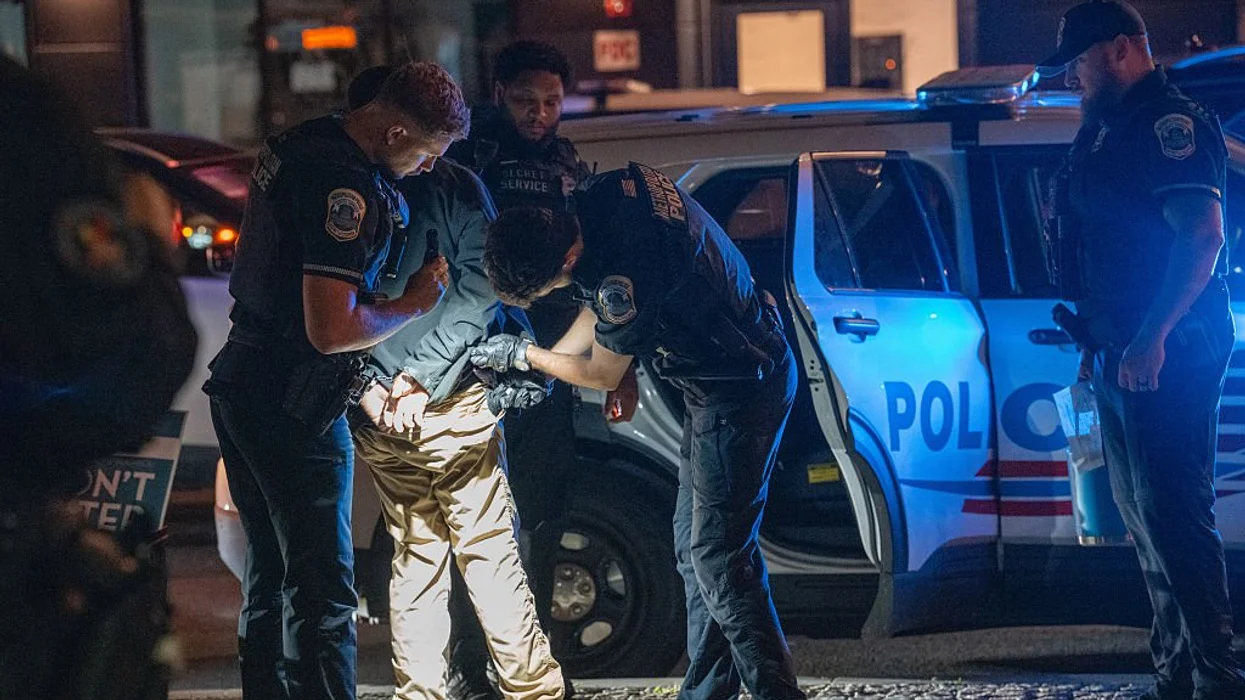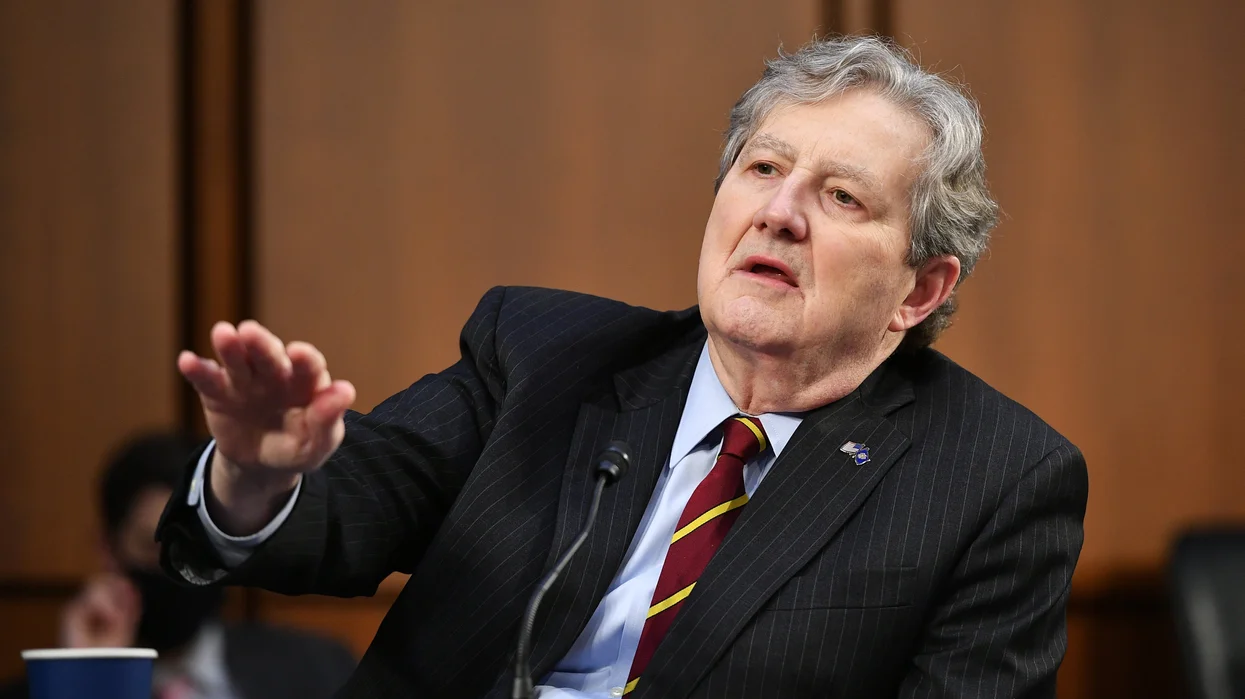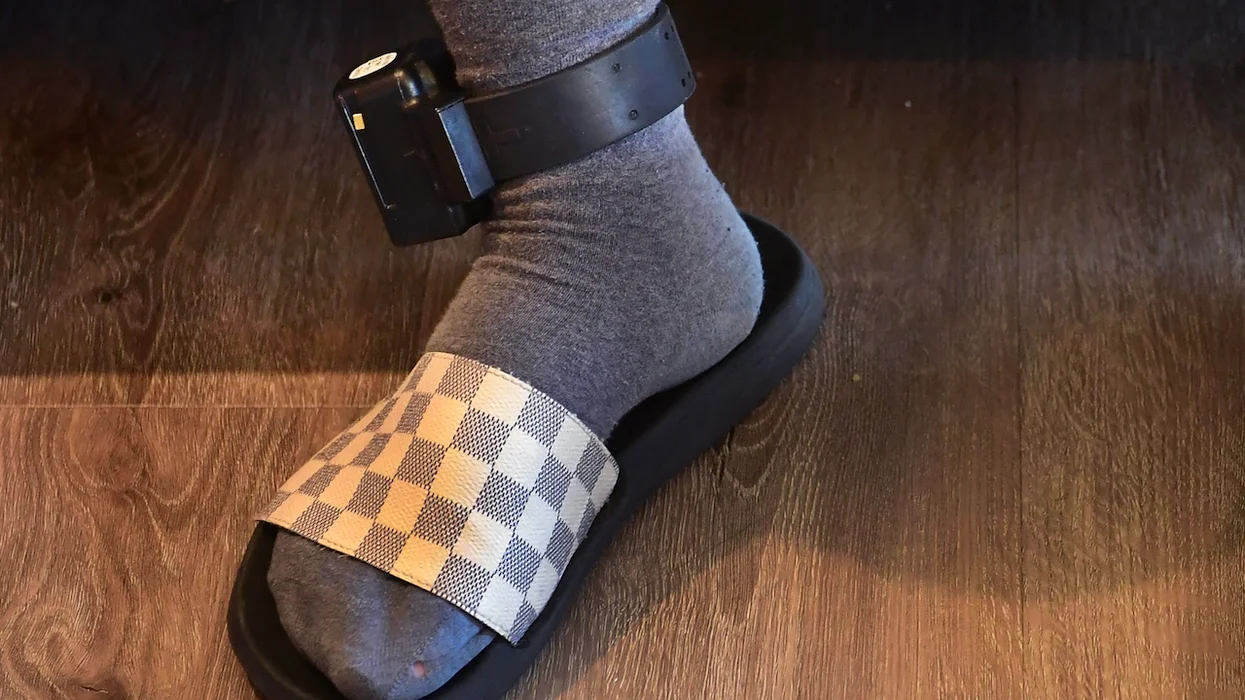© 2025 Blaze Media LLC. All rights reserved.
GENEVA (AP) — Swiss television forecasts defeat for a referendum to tighten the Alpine nation's liberal firearms laws.
National TV station SF predicts 57 percent of voters have rejected the plan in a national ballot Sunday.
It forecasts that 43 percent of voters backed the proposal to ban army rifles from homes and impose new requirements for buying other guns.
Proponents including churches and women's groups had favored the plan as a way to reduce domestic violence and Switzerland's high rate of firearms suicide.
The government says existing laws are sufficient to ensure some 2.3 million mostly military weapons in a country of less than 8 million people aren't misused.
THIS IS A BREAKING NEWS UPDATE. Check back soon for further information. AP's earlier story is below.
GENEVA (AP) — Swiss citizens went to the polls Sunday to decide whether to tighten the Alpine nation's liberal firearms laws, a move that would abruptly end the long tradition of men keeping army rifles at home even after completing their military service.
Gun clubs and supporters of the country's distinctive citizen soldier militia fiercely oppose the plan to army rifles in secure storage and impose new requirements for buying other guns.
Proponents see it as a way to reduce domestic violence and Switzerland's comparatively high rate of firearms suicide.
The government says existing laws are sufficient to ensure some 2.3 million mostly military weapons in a country of less than 8 million people aren't misused.
The outcome of the nationwide referendum is expected to hinge on the votes of women and young people. In a survey published last month by the respected polling group gfs.bern, a narrow majority of 47 percent expressed support for the proposal, with 45 percent opposed. About 8 percent of voters were undecided, according to a telephone poll of 1,209 voters.
Voters leaving a polling station in Geneva largely supported the proposal.
"I think it's a good thing to limit the circulation of weapons," said Hugo Zbinden, a physicist and member of the Green Party.
But he conceded that even if a majority of Swiss vote in favor of the plan, the measure could fail to win the backing of a majority the country's 26 cantons, or states.
"Many of the smaller conservative cantons will probably vote against it," said Zbinden.
Doctors, churches and women's groups launched the campaign to force ex-soldiers to store their military-issued firearms in secure army depots. They also want the Swiss government to establish a national gun registry and ban the sale of fully automatic weapons and pump action rifles.
Gun enthusiasts say limiting the right to bear arms in a country that cherishes the national myth of William Tell and citizen preparedness against possible invasion by hostile neighbors
Dora Andres, president of the Swiss Sport Shooting Association, told The Associated Press this week that the measure could kill off many of Switzerland's 3,000 gun clubs, which she said were a pillar of community life in many villages.
Both sides have used graphic images to make their point, with proponents producing posters showing teddy bears oozing blood below the slogan "Protect families." Opponents' posters have featured muscular cartoon criminals threatening the nation's law-abiding citizens.
About a quarter of Switzerland's 1,300 suicides each year involved a gun, according to federal statistics. The exact number of military-issued weapons involved is disputed, but those calling for tighter rules claim they account for between 100 and 200 suicides a year, mostly among men.
Advocates for the new law also note that since Switzerland cut the size of its army in 2004, the number of firearms suicides among men aged 30-40 has been cut in half.
It is not known how many military-issued guns are involved in homicides each year, though Switzerland's gun murder rate is relatively low — just 24 in 2009, or about 0.3 firearms homicides per 100,000 inhabitants. By comparison, the U.S. rate in 2007 was 4.2 per 100,000 inhabitants.
First results were expected shortly after polls closed at noon (1100 GMT).
Want to leave a tip?
We answer to you. Help keep our content free of advertisers and big tech censorship by leaving a tip today.
Want to join the conversation?
Already a subscriber?
more stories
Sign up for the Blaze newsletter
By signing up, you agree to our Privacy Policy and Terms of Use, and agree to receive content that may sometimes include advertisements. You may opt out at any time.
Related Content
© 2025 Blaze Media LLC. All rights reserved.
Get the stories that matter most delivered directly to your inbox.
By signing up, you agree to our Privacy Policy and Terms of Use, and agree to receive content that may sometimes include advertisements. You may opt out at any time.





